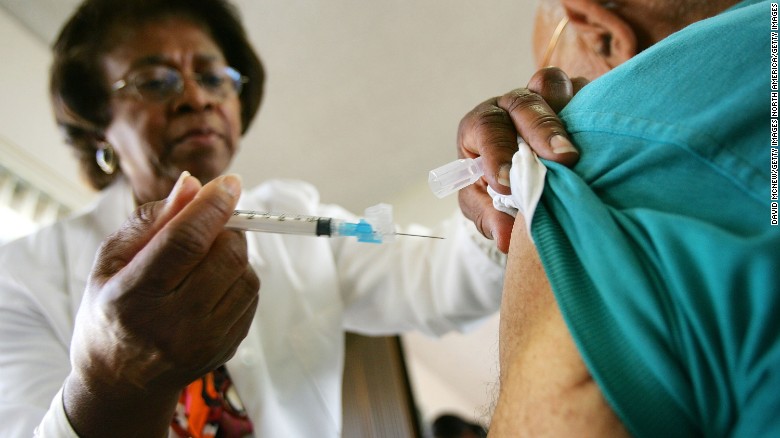(CNN)Flu activity is increasing in the United States, the US Centers for Disease Control and Prevention reported Friday.
As of the week ending December 22, nine states are experiencing high flu activity -- Alabama, Colorado, Georgia, Kentucky, Louisiana, Maryland, New Jersey, New Mexico and South Carolina -- as well as New York City. That's an increase from the previous week, when two states, Colorado and Georgia, experienced high flu activity. Seven states and Puerto Rico are experiencing moderate flu activity. Among the four states along the southern US border, flu activity increased to high in New Mexico and moderate in Arizona, the CDC noted.
Geographically, there's widespread flu activity reported in 11 states -- Arizona, California, Connecticut, Delaware, Florida, Georgia, Massachusetts, Nebraska, New Mexico, New York and North Carolina -- and Guam.
Influenza A viruses have been dominating in the United States since the beginning of October, the CDC said, although influenza B viruses are circulating, as well.
There were four flu-related pediatric deaths reported to the CDC during the week ending December 22. There have been 11 total flu-related deaths among children in the 2018-2019 season.
Read More
The 2017-2018 flu season was the most deadly in decades with more than 80,000 deaths, including 185 pediatric flu deaths.
Flu symptoms, treatment and prevention
People with the flu often experience fever, chills, coughing, sore throat, runny or stuffy nose, muscle or body aches, headaches and fatigue, according to the CDC. Some -- more commonly children -- may also have vomiting and/or diarrhea. Many people people become ill suddenly and recover within a few weeks with rest.
Those who are at higher risk for developing flu-related complications should be treated with antiviral medications as soon as possible. When treatement is started within days of becoming sick, antiviral drugs can lessen symptoms and hasten recovery, and reduce complications and hospitalizations.
Flu complications, such as pneumonia, can result in hospitalization or even death. Some people are at higher risk for complications from the flu, including children younger than 5 years old, particularly those under 2. Also at high risk are adults 65 and older, pregnant women, residents of long-term care facilities and people with medical conditions including weakened immune systems, asthma, heart disease and diabetes.
Get CNN Health's weekly newsletter
Sign up here to get The Results Are In with Dr. Sanjay Gupta every Tuesday from the CNN Health team.
Hand-washing, staying away from sick people and avoiding touching your eyes, nose and mouth can help prevent the flu. But the most important step to stop seasonal flu, according to the CDC, is for everyone 6 months or older to get vaccinated. As long as flu is circulating in the area where you live, it is not too late to get vaccinated.
Although the vaccine won't prevent all cases of the flu, it lessens the severity and duration of symptoms, and those who get flu after receiving a vaccine are less likely to require hospitalization and less likely to die.

















